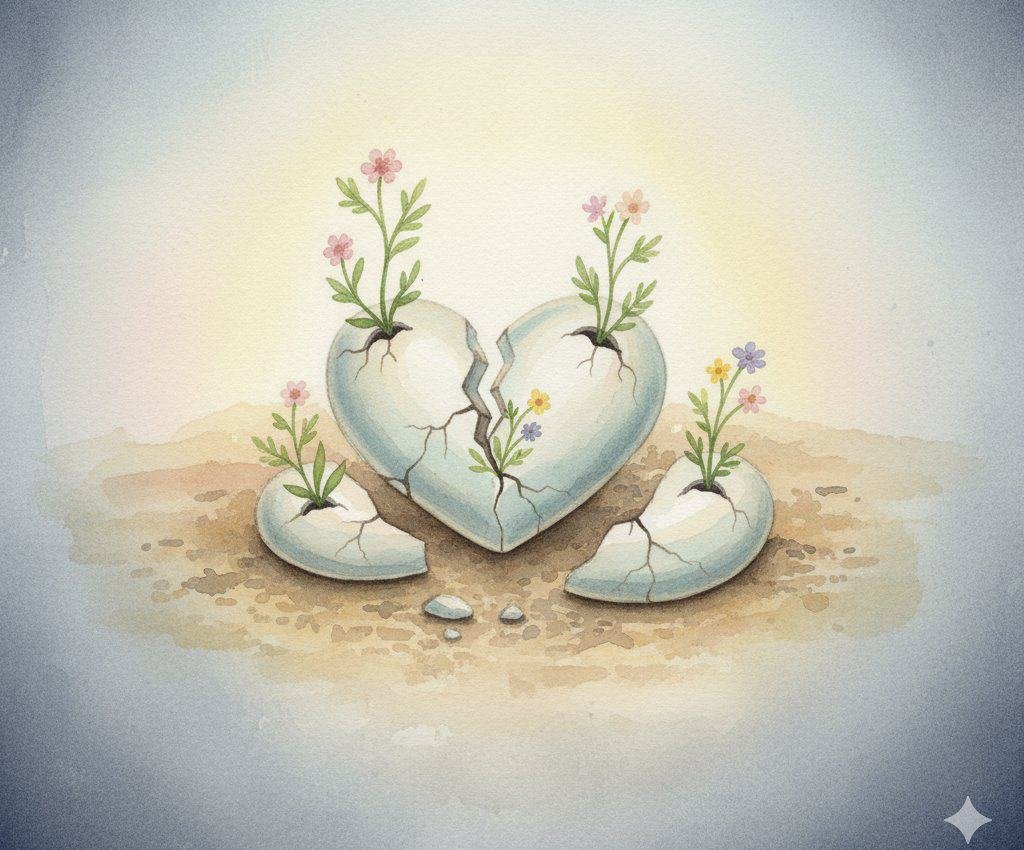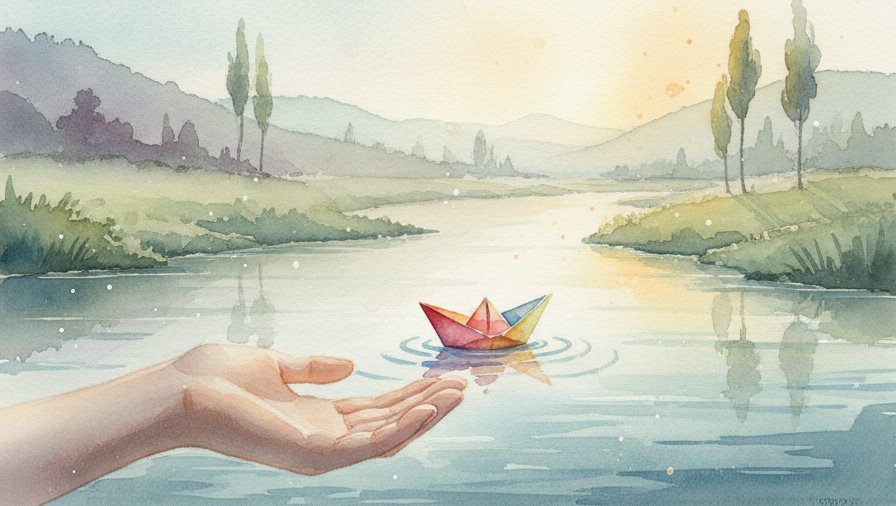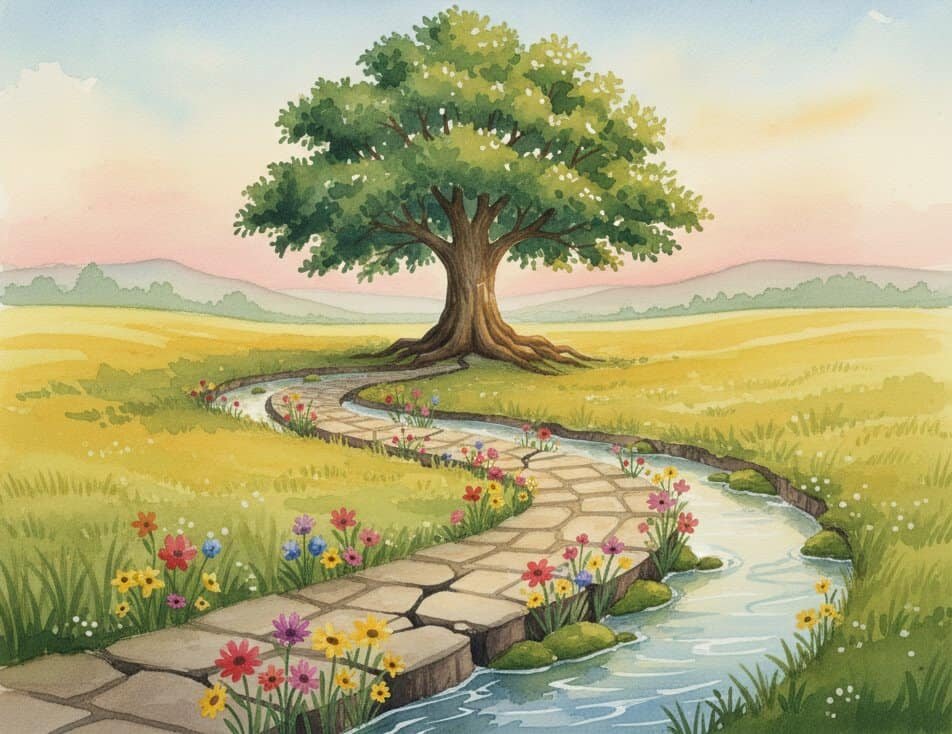Table of Contents
When Breaking Feels Like the End of Everything
We all break sometimes. People are breaking all over the world right now—relationships ending, dreams falling apart, futures changing in ways we never saw coming.
If you’re reading this while dealing with your own heartbreak, I want you to know something: it’s okay to be broken. Sometimes that’s when love looks most real.
At fifty-five, I found myself crying unexpectedly—the kind of raw tears that catch you off guard while washing dishes or watching YouTube. Someone I’d loved for decades was leaving, and there was nothing I could do to stop it because, deep down, I knew they needed to go.
If you’re feeling shattered by someone’s leaving, by someone’s choice to build their life elsewhere, you’re not alone. You’re not weak. You’re human. And maybe your breaking is proof that what you had was real.

Have you ever been blindsided by how much losing someone could hurt?
When You Realize They Need to Leave
The hardest part of heartbreak isn’t always the leaving itself—it’s the moment you realize they need to leave. That staying with you, no matter how much you care about each other, isn’t making them happy anymore.
Maybe they’re chasing a dream that doesn’t include you. Maybe they need to return to a place or a life they left behind. Maybe the version of themselves they’re becoming requires space you can’t provide.
You can love someone deeply and still be part of what’s holding them back.
That realization breaks you in a different way than betrayal or conflict. There’s no villain. No dramatic fight to point to. Just the quiet understanding that sometimes love means recognizing when your presence, no matter how genuine, isn’t helping them become who they need to be.
Have you ever had to let someone go even though you didn’t want them to leave?
Different Kinds of Love
Not all love starts with fireworks and passion. Some love grows slowly through time, through showing up, through building something together that doesn’t fit traditional categories.
Maybe you became a team before you became a couple. Maybe you chose each other out of practical necessity and then discovered something deeper. Maybe your relationship looked strange to outsiders but made perfect sense to the two of you.
When that kind of love ends, people sometimes don’t understand why you’re grieving. “You weren’t even that romantic,” they might say. “You had your problems.”
But love through loyalty, through time, through choosing each other day after day—that’s real too. Maybe more real than the passionate beginnings that burn out fast.
When it ends, you’re not just losing a partner. You’re losing the person who knew your daily rhythms, who understood the unspoken agreements, who was part of the ordinary fabric of your life.
What kind of love surprised you by being different than you expected?
The Breaking That Reveals What’s Real
Here’s what I learned from my own breaking: sometimes falling apart is evidence that you loved the right way, not the wrong way.
If you can watch someone leave and still want good things for them, that’s real love showing itself. If you’re broken because you couldn’t make them happy despite trying your best, that’s not failure—that’s caring deeply about someone else’s wellbeing, and a recognition that sometimes you can’t always be everything they need.
The breaking strips away all the pretense. It reveals what was authentic underneath—the genuine care, the real concern for their happiness, the willingness to support their journey even when it takes them away from you.
Not everyone can love like that. Some people only love when it’s easy, when it serves them, when it costs nothing. Your breaking proves you’re not one of those people.
Does your heartbreak tell you something about how deeply you can care?
When Helping Means Letting Go
One of the hardest truths about love: sometimes supporting someone means stepping aside.
If you’re part of their problem—not through malice but through mismatch—then the loving thing might be releasing them to find happiness elsewhere. That doesn’t mean you failed. It means you recognized that not every good person is the right person for every situation.

You might still want to help them. That instinct doesn’t disappear just because the relationship ended. The impulse to make their life easier, to support their dreams, to be there when they struggle—that can persist long after they’ve chosen a different path.
Some people will think you’re foolish for still caring. But helping someone you love, even after they’ve left, isn’t weakness. It’s honoring what was real between you, even if the form of that love has to change.
Who do you still want to help even though the relationship has changed?
What Carries You Through
Time moves strangely when you’re broken. The days feel both endless and surprisingly quick. You’re functioning on the surface while something fundamental is reorganizing itself underneath.
What helps? Work, mostly. Staying busy enough to get through each day. Finding the balance between talking about what you’re going through and just getting on with life. Some days you need to process the loss. Other days you need to shut up, suit up, and show up.
Small accomplishments matter more than usual. Proving to yourself that you can still learn something, that you’re worth more than being left behind makes you feel. Showing up for the people who employ you, work alongside you, need you in some small way.
When we’re struggling, we might not notice that our community continues to function and serve us, even without realizing we need it. That invisible support system can be lifesaving.
What kept you functioning when you were barely holding it together?
The Broken Places Heal Differently
I won’t tell you the breaking gets easier or that time heals all wounds in some neat, predictable way. The broken places don’t always heal the same way they were before.
But they do heal. And sometimes they’re stronger for having been tested.
You learn things from breaking that you can’t learn any other way. How much you can actually endure. What matters when everything else falls away. Who you are when nobody’s watching and you’re just trying to make it through another day.
You learn that you can love someone and still let them go. That you can grieve deeply and still function. That being broken for a while doesn’t mean staying broken forever.

The Truth About Loving Someone Who Left
If you’re navigating your own version of this—loving someone who needed to leave, supporting someone who ultimately chose a different path, feeling broken by doing what you knew was right—you’re not alone.
Being broken doesn’t mean you loved the wrong way. Sometimes it means you loved them the right way, even when it cost you everything.
Everyone’s free to make their choices, follow their dreams, complete their own circles. Our job isn’t to prevent that. It’s to love well for whatever time we have, then find ways to keep loving—differently, from a distance, in whatever form still honors what was real—even when the geography changes.
Sometimes love looks like letting go. Sometimes it looks like staying broken for a while, then slowly rebuilding yourself in the space they left behind. Sometimes it looks like still caring about someone who chose a different life, because helping was never about what you’d get in return.
The broken places teach you what was real. And what’s real doesn’t disappear just because someone does.
Have you learned to love someone differently after they left?

Share your thoughts below. I respond to every comment, and your experience often helps others more than mine does.





Writing this post, I kept wondering if I was oversharing. But then I remembered how uncontrollably sad I was after she left Japan, and how easily triggered I was with random emotional YouTube videos and songs in the following months.
The fist bump goodbye still replays sometimes. If admitting that helps one person feel less alone in their own breaking, then the embarrassment is worth it.
The good news is, love can last forever, and pain subsides a little with time.